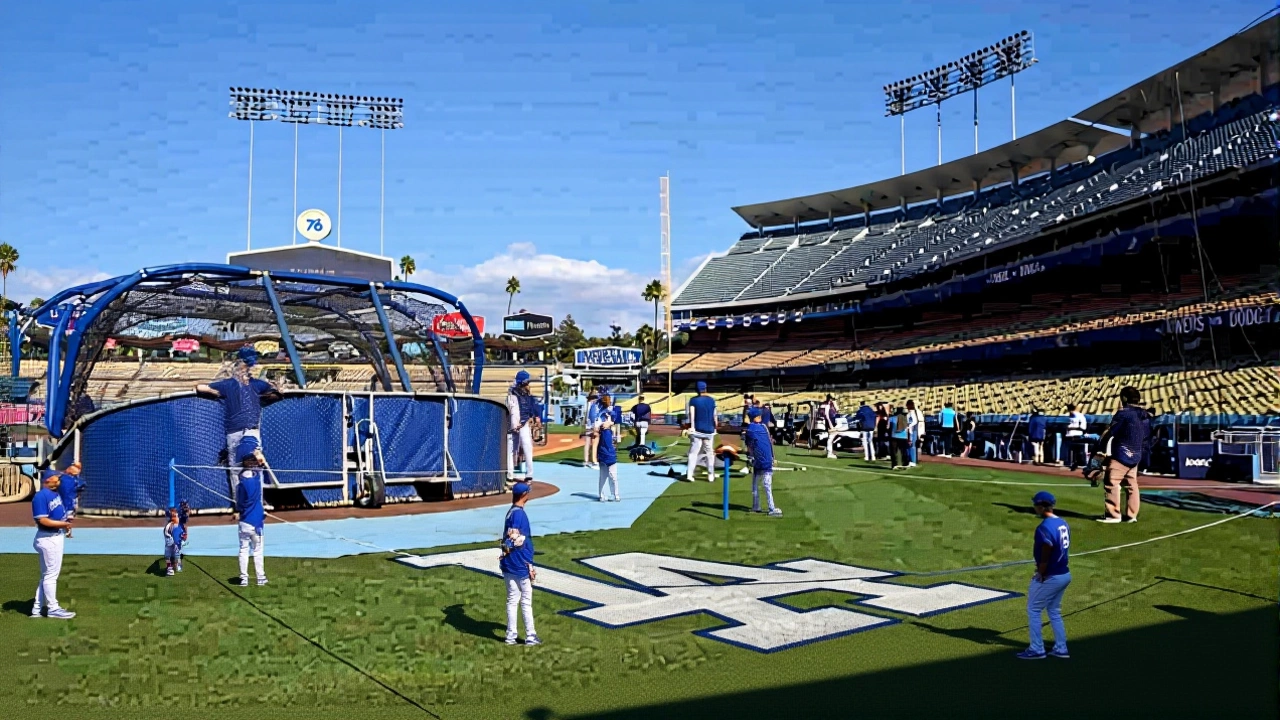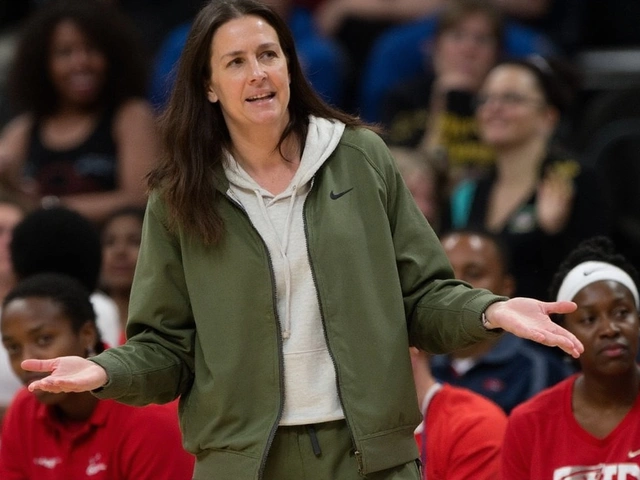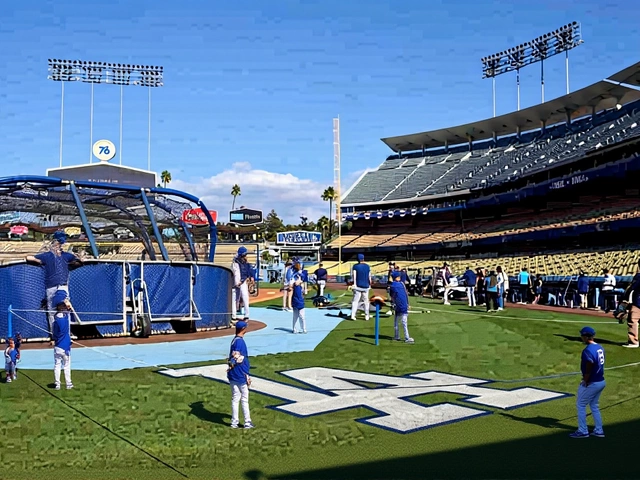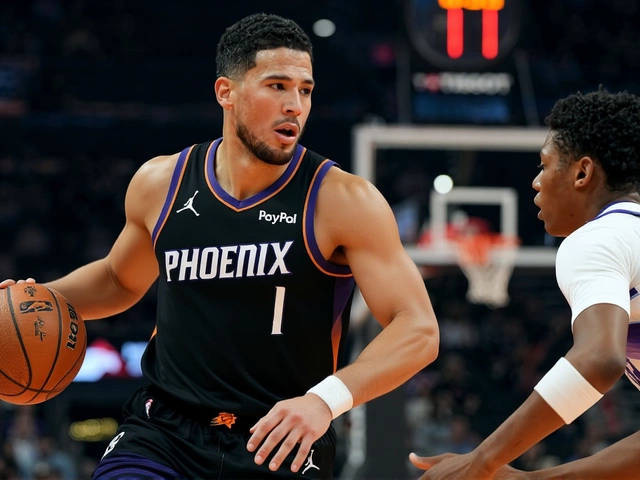When Yoshinobu Yamamoto, starting pitcher for the Dodgers delivered a nine‑inning masterpiece on Tuesday night, the Milwaukee Brewers found themselves staring at a 5‑1 deficit in Game 2 of the National League Championship SeriesMiller Park. The win vaulted Los Angeles to a 2‑0 series lead and set the tone for a home‑field swing in Game 3.
Historical context: A clash of recent champions
The Dodgers entered the NLCS fresh off a 93‑69 regular‑season that crowned them NL West champs and handed them the 2025 World Series trophy. Their rivals, the Brewers, posted a 97‑65 record to clinch the NL Central, a campaign highlighted by a 45‑36 road ledger. Both clubs have leaned heavily on elite arms: Los Angeles with a rotation anchored by Clayton Kershaw (who missed the start due to a sore elbow) and Milwaukee’s Freddy Peralta stepping onto mound for Game 2.
Game 2 details: Pitching dominance and timely hits
The opening inning began with a flash – Jackson Chourio ripped a leadoff homer, momentarily silencing the Dodgers' bullpen chatter. But Yamamoto, unfazed, settled in fastball‑curveball rhythm and retired the next eight batters without allowing a run.
- Yamamoto threw 102 pitches, 71 for strikes, striking out 9 and walking none.
- The Dodgers recorded 8 hits, 5 runs, and 2 errors.
- Brewers managed 5 hits, 1 run, and left 3 baserunners stranded.
Los Angeles answered back in the first inning when Teoscar Hernández launched a solo blast to center. The momentum shifted again in the second when Andy Pages stroked an RBI double, giving the Dodgers a 2‑1 lead. Max Muncy extended the gap with a deep drive that cleared the left‑field wall, and a clutch RBI single from superstar designated hitter Shohei Ohtani made it 4‑1.
The seventh inning offered a glimpse of Milwaukee’s resilience. Kike Hernández squeezed a double that landed on the warning track, and Pages laid down a perfect sacrifice bunt, loading the bases. Yet Aaron Ashby entered for the Brewers and failed to keep the pressure off; a later RBI single by Tommy Edman pushed the tally to 5‑1. Boston‑style, the Dodgers’ defense held firm, and Yamamoto closed out his ninth with a grounder to shortstop for the final out.
Key performances: Who shone and who faltered
Yamamoto’s complete‑game shutout was the headline act. His line – 9.0 IP, 0 H, 0 R, 9 K, 0 BB – mirrored the dominance he displayed in the postseason earlier this year. For the Brewers, Peralta’s six innings proved serviceable but left the team trailing 3‑0 by the third inning.
Offensively, the Dodgers spread the damage. Besides the early blows from Hernández, Pages, Muncy, and Ohtani, Will Smith added a run‑scoring single in the eighth, showcasing the depth of Los Angeles’ lineup. Milwaukee’s lone bright spot beyond Chourio’s homer was a timely single by Christian Yelich that slipped through a defensive shift, but it was too little, too late.
Reactions: Coaches, players, and fans weigh in
Dodgers manager Dave Roberts praised Yamamoto’s stamina: “He gave us his everything, night after night. When you see a pitcher bite the rubber for nine solid frames, you know you’re in good hands.”
Brewers skipper Craig Counsell remained cautiously optimistic: “We’ve got a lot of talent. It’s a long series, and knock‑out swings happen. We’ll regroup at home.”
Fan sentiment on social media echoed a mix of awe and frustration. Dodgers supporters flooded Twitter with the hashtag #YamamotoMagic, while Brewers fans lamented missed opportunities, citing “unforced errors” and “late‑inning panic.”

Impact: What the 2‑0 advantage means for both clubs
Holding a 2‑0 lead in a best‑of‑seven series dramatically tilts the odds. Historical data shows that teams winning the first two NLCS games win the series over 83% of the time. For Los Angeles, the win also restores confidence after a shaky start in Game 1, where they trailed early before rallying.
Milwaukee now faces a must‑win scenario on home turf in Game 3. A victory would inject momentum and force the Dodgers back to the drawing board. Conversely, a third straight loss would place the Brewers on the brink of a sweep – a rare outcome in modern championship series.
Looking ahead: Game 3 in Los Angeles
Game 3 shifts to Dodger Stadium on Thursday, October 16. The Dodgers will likely ride their ace rotation, with Walker Buehler slated to start, while the Brewers may counter with left‑hander Jacob Barnes. Expect the Dodgers to lean heavily on Ohtani’s bat, as he’s already sitting at a .282 average with 55 homers this season.
Beyond the immediate series, the NLCS outcome will set the stage for a World Series showdown that could feature a repeat of the 2024 East‑West clash – the Dodgers against the American League champion Houston Astros. For now, the focus remains on whether the Brewers can claw back from a two‑game hole and force a decisive Game 4.
Frequently Asked Questions
How does the Dodgers' 2‑0 lead affect the Brewers' chances?
Historically, teams that win the first two NLCS games capture the series about 83% of the time. The Brewers now must win three straight, a feat achieved only twice since the league‑wide best‑of‑seven format began in 1985.
What made Yoshinobu Yamamoto's performance so dominant?
Yamamoto mixed a 94‑mph fastball with a sharp breaking ball, keeping hitters off‑balance. He recorded nine strikeouts, walked no batters, and induced weak contact on every other out, demonstrating the stamina that earned him a Cy Young nomination in Japan.
Who are the key players to watch in Game 3?
For the Dodgers, Shohei Ohtani’s power and Walker Buehler’s elite fastball will be pivotal. The Brewers will rely on Christian Yelich’s clutch hitting and the left‑handed arm of Jacob Barnes to keep the game competitive.
What does this series mean for the Dodgers' World Series odds?
A 2‑0 lead puts Los Angeles in a commanding position, boosting their odds of reaching the World Series to roughly 71% according to betting markets. A sweep would give them extra rest before the Fall Classic.
How did the Brewers' offense compare to their regular‑season performance?
Milwaukee averaged 4.8 runs per game in the regular season, but held to just one run in Game 2, largely due to Yamamoto’s dominance and untimely strikeouts that stalled their usual rally‑heavy approach.



